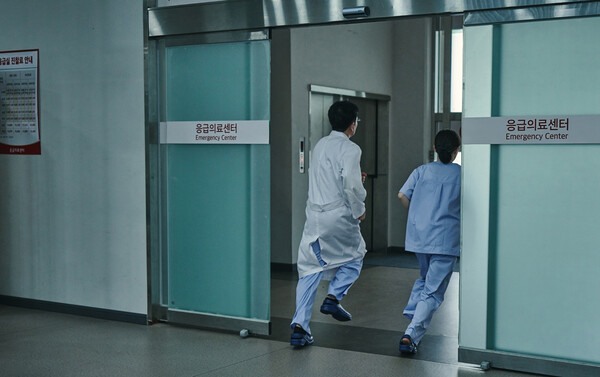
An emergency physician who went on trial for failing to diagnose an aortic dissection when he was a medical resident has also been sentenced to jail at the appeals court.
Emergency physicians warned that the court ruling was "senseless" and could lead to the collapse of emergency medicine.
On Thursday, the Seoul High Court's 9th Criminal Division sentenced the doctor, charged with professional negligence and violation of the Medical Service Act, to six months in prison and two years' probation. Doctors' licenses are revoked if they are sentenced to a prison term or higher for violating medical laws.
In 2014, when the physician was a first-year emergency medical resident at a university hospital in Seoul, he worked in the emergency room when a patient arrived complaining of chest pain, numbness, cold sweats, and vomiting. The doctor performed an electrocardiogram and myocardial enzyme test but found no other abnormalities in the patient and diagnosed him with acute gastritis.
However, around 3:30 a.m., an hour after the examination, the patient’s pain increased, and his guardian asked him to see a cardiologist. However, the medical resident refused their demand and gave him painkillers. After the painkillers were administered, the patient’s symptoms were relieved, and he left the hospital.
However, at around 10 a.m. the same day, the patient was brought to the hospital unconscious and diagnosed with a bilateral multiple cerebral infarction due to an advanced aortic dissection. The patient suffered from brain lesion disability with cognitive loss and quadriplegia.
Like the lower court, the appeals court also determined that the doctor breached his duty of care, noting that if he had conducted additional diagnostic tests, such as a chest CT scan, at the time of the patient’s visit to the emergency room and provided surgical treatment, the patients would have been correctly diagnosed earlier and not suffered brain lesion disability.
The court also pointed out that the doctor had violated the Medical Service Act by falsifying a medical record stating that he had recommended a chest CT scan but that the patient’s guardian refused it. The doctor appealed it was not true, but the court did not accept it.
The Korean Emergency Doctors Association strongly reacted to the ruling, saying it was a senseless decision lacking medical understanding.
"This is a regrettable ruling. It doesn't make sense that a doctor can be criminally prosecuted for failing to diagnose an aortic dissection in the emergency room while it is impossible to determine when the aortic dissection occurred accurately," said Lee Hyung-min, chairman of the association. "No other countries in the world hold a doctor criminally liable for failing to diagnose."
Lee said that people will inevitably hear the news that emergency medicine closed its door in this atmosphere.
“Who would take the risk of becoming a criminal? Suppose we hold emergency physicians accountable for failing to diagnose. In that case, patients who are even slightly unwell or have chest pain will not be treated at all without a cardiothoracic surgeon," he said.
Lee stressed that this ruling would further exacerbate the trend of patients resorting to seeking emergency room care across multiple hospitals due to the ongoing shortage of doctors.

